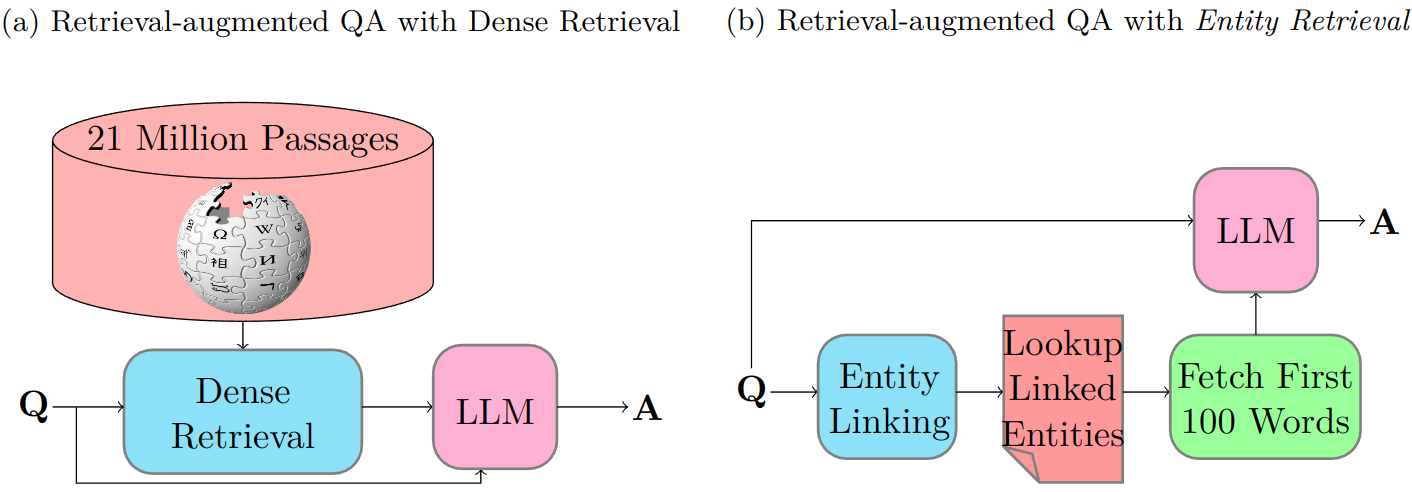This repository contains the implementation and the experiments from our paper "Entity Retrieval: Entity Linking for Answering Entity-Centric Questions", currently under review for EMNLP 2024.
The implemented source code is stored under src directory.
You can start by looking at the data package which
contains data readers for the datasets on which we have conducted our experiments.
To add a new dataset you can easily implement a new class which implements data.loaders.utils.QADataset. The most
important functions to be implemented are __iter__ and __next__. The __next__ method must return instances of
data.loaders.utils.QARecord. Once implemented add the new dataset to data.loader.get_dataset and you should be
able to run all the experiments with the new dataset flawlessly.
We have used the following script to create the selected EntityQuestions dataset which we have used in the paper:
import json
from zipfile import ZipFile
from model.entity_linking.spel_vocab_to_wikipedia import SpELVocab2Wikipedia
lookup_index = SpELVocab2Wikipedia()
zip_ref = ZipFile("entity_questions.zip", 'r')
for c_file in ["train.jsonl", "dev.jsonl", "test.jsonl"]:
data = zip_ref.open(c_file)
with open(c_file, 'w') as f:
selected_size = 0
all_size = 0
for line in data:
record = json.loads(line)
entity = record['entity'].replace(' ', '_')
all_size += 1
if entity in lookup_index.spel_vocab2wikipedia_lines:
f.write(f"{json.dumps(record)}\n")
selected_size += 1
print(f"Selected {selected_size} out of {all_size} from {c_file}")
zip_ref.close()As mentioned in the paper, we treat document retrieval as a pre-processing step, caching the most relevant passages
for each question - considering different retrieval techniques - before conducting the question answering experiments.
prefetch_pyserini_retrieval_documents.sh located directly under src directory, creates all such pre-fetched passages and
stores them for re-use in experiments. You may use the same script with slight modifications for creating pre-processed
passage repositories for your newly added datasets. Please note that the underlying implementation for these processes
uses PySerini and loads pre-built FAISS indexes for dense retrieval techniques. Such processes can require up to 65GBs
of main memory and about the same amount of available disk storage to download and store the index.
For entity retrieval prefetched documents, you may follow the same procedure using prefetch_entity_retrieval_documents.sh.
Please remember to instantiate the entity linker directory using git submodule update --init --recursive before running this script.
You can run analyze_prefetched_documents.py to reproduce retrieval
coverage analysis results using which you can recreate Figures 3 and 4 and Table 1.
As well, the results of Tables 2 and 3 can be replicated using run_llama_raqa_experiments.sh,
and the realtime efficiency experiments of Table 4 can be replicated using run_realtime_raqa_experiments.sh.
Once your script finishes, you may use organize_and_pack_up_experimental_results.sh
to organize the created result files into proper folders.
